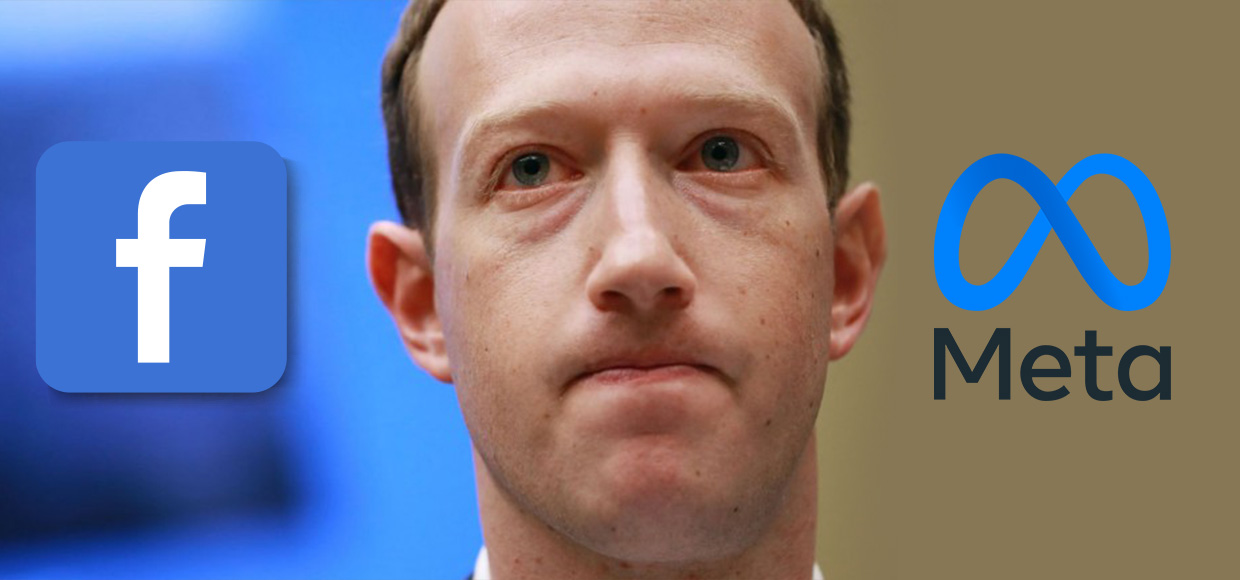It’s been roughly five months since Facebook’s parent company, Meta, changed its name, and the transition has not been without bumps along the road. Meta 500 Billion Dollar Loss after Facebook Rebrand is shocking. Companies such as Apple and Google have begun to implement privacy restrictions that are severely restricting Meta’s business model, which relies on collecting as much of your personal data as possible in order to sell your goods back to you. Earlier this month, the business’s stock market value had already plunged by 30 percent, and the situation is only getting worse for the corporation.
Apple’s and Google’s privacy policies, which enable users to reject Meta’s trackers, are plainly harming the company’s income, but these trackers were already responsible for many users abandoning the platform before the privacy policies were implemented. Many people are turned off by being constantly disturbed by random or creepily accurate advertising, but there are a variety of additional factors contributing to the drop in popularity.
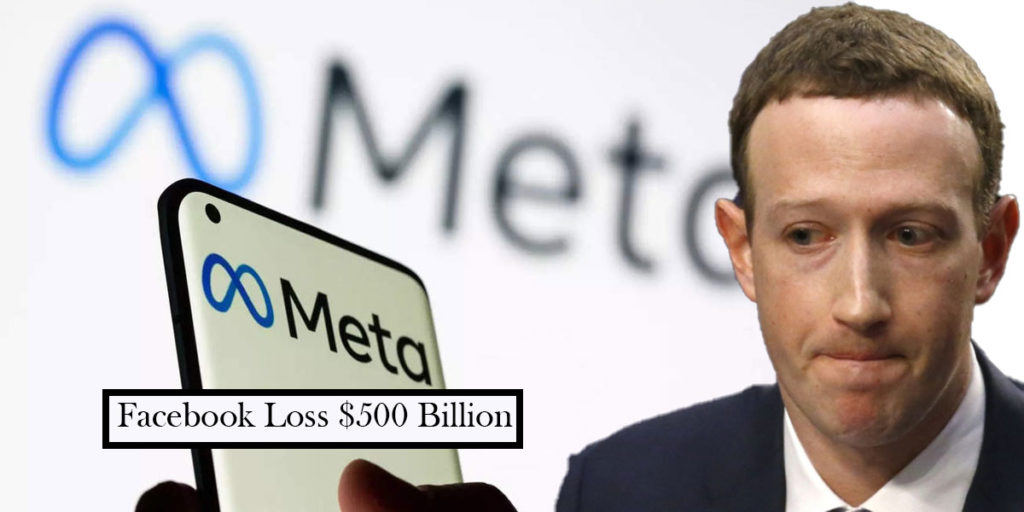
Facebook and other Meta platforms are scarcely able to get a word in edgewise with younger populations who prefer alternative platforms such as TikTok and Snapchat. It’s typically seen as a site where one out-of-touch relative may receive all of their disinformation, rather than as a hip social media hangout for young people. However, Meta’s 500 Billion Dollar Loss is a high stake to risk.
- For the first time, Meta published financials for its “metaverse” company.
- Apple introduced a feature to the iPhone last May that prevents companies from monitoring you between applications.
- The majority of users have chosen to opt out of tracking, which has a significant financial effect on Facebook.
It is not inexpensive to construct the metaverse. In its fourth-quarter earnings report, Meta, Facebook’s parent corporation, released for the first time the financials of its Reality Labs business. It was revealed then, about Meta $500 Billion Dollar Loss.
That’s the division of Facebook entrusted with realizing CEO Mark Zuckerberg’s metaverse vision. Hardware revenue, such as the company’s Meta Quest virtual reality headset, is also included.
Thus, how’s Zuckerberg’s massive metaverse bet working out so far?
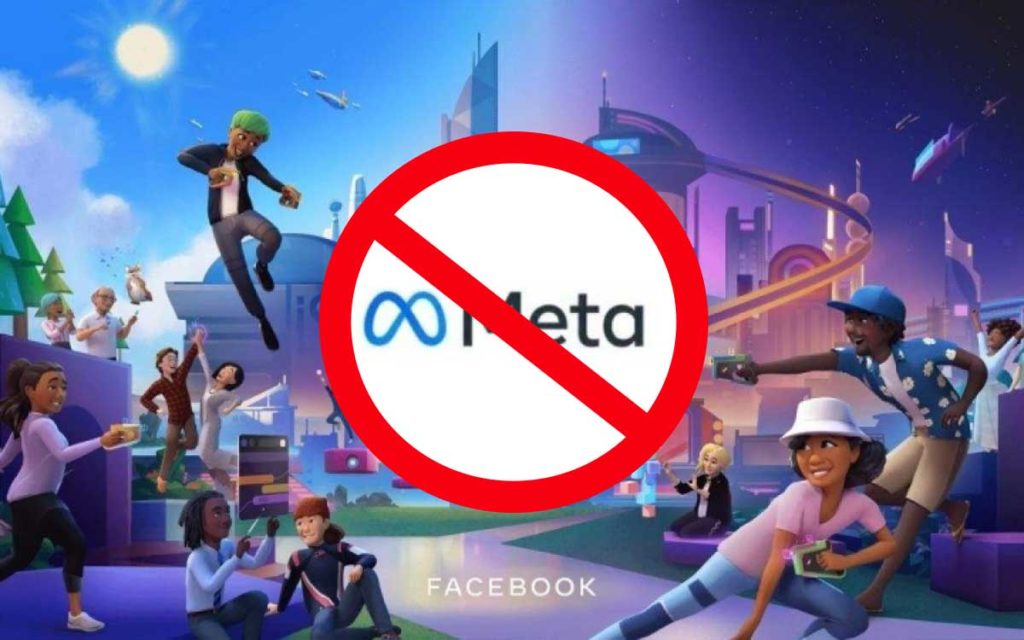
According to New York Magazine, Meta has suffered a $500 billion loss since changing its name, however blaming the new moniker is probably not entirely fair. It’s the other changes that came with the rebranding, as Zuckerberg looks to be leading the corporation in a new and perhaps bizarre path with the name change. The company’s new approach, which includes a significant emphasis on the metaverse and immersive internet, was signaled by the company’s name change to Meta, but it’s not surprising that the majority of users don’t seem to be buying it.
Meta 500 Billion Dollar Loss
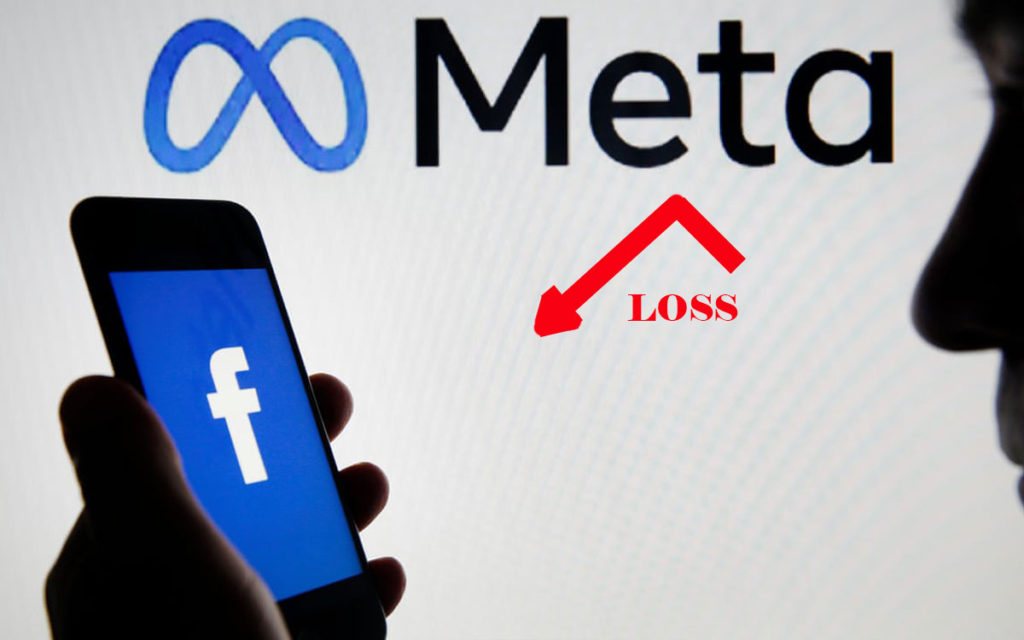
Meta 500 Billion Dollar loss has come to light. Meta has suffered as a result of the new privacy regulations. Since its business model is based on tracking as much of your personal data as possible. Maybe that is what resulted in Meta 500 Billion Dollar Loss.
According to figures released earlier this month, the company’s stock market value has decreased by 30 percent since its IPO. The privacy restrictions implemented by Apple and Google, which enable users to reject Meta’s trackers, are definitely having an impact on the company’s operations.
The trackers used by Meta, on the other hand, are said to be the cause of many users abandoning the company’s platforms altogether. This has occurred largely as a result of a typically negative reaction to commercials that are frighteningly realistic.
While Facebook’s rebranding to Meta has resulted in a $500 billion deficit, the company’s financial woes are not solely attributable to the makeover. Facebook is heading in a new and, frankly, rather frightening path because of Zuckerberg’s heavy emphasis on the metaverse and immersive internet.
There is no denying that many of us are feeling a little uncomfortable by these bizarrely distorted virtual reality landscapes and digital realms. Some players and game developers seem to be particularly perplexed, as though they don’t understand the purpose of digital worlds that look significantly worse than most recent games. It should come as no surprise that many people do not agree with Meta’s branding and corporate orientation.
The renaming of Facebook has inspired an outpouring of jokes at their expense, with numerous firms, such as Hulu, making light of Zuckerberg’s decision to rename the social media platform. $500 billion is a grotesque sum of money to be wiped out in a few months. Meta, which was formerly ranked sixth on the list of the world’s wealthiest corporations, has fallen all the way to eleventh place as a result of the company’s downturn. It remains to be seen if Zuckerberg’s bet on the metaverse will payout in the long run.
The parent company of Facebook
This year is a result of a little but significant adjustment made by Apple last year. Apple permitted iPhone owners to pick which applications to follow their activity across other apps in April 2021. As a consequence, the great majority of users have opted out, causing Facebook’s ad income to suffer, according to Meta CFO David Wehner.
“In 2022, the entire effect of iOS as a headwind on our business will be on the order of $10 billion,” he stated during the company’s fourth-quarter results conference call on Wednesday evening.
Meta’s principal source of income is advertising, which is based on the huge database of user data it has accumulated by administering several of the world’s most popular social networks, including Facebook, Instagram, and WhatsApp.
When Apple provided consumers the choice to stop such applications from monitoring them across other apps, it effectively shut down one of the most important sources of advertising data. Apple’s iOS 14.5 upgrade, which went live in April 2021, required app developers to add a pop-up asking for permission to monitor user behavior for ad sales.
If users opt-out, Apple disables the app’s access to a range of data that marketers utilize.
According to early estimates, over 95 percent of iPhone users who downloaded the update chose to opt-out of ad monitoring, resulting in Wehner’s projection that Facebook’s ad income will drop by $10 billion in the following year. “We won’t be able to be exact on this. It’s only a guess “he said “We’re working hard to offset those effects and keep advertisements relevant and useful for users,” says the company. Now, Meta is suffering 500 billion dollar loss.
Facebook also disclosed its first-ever dip in users, and parent company Meta’s stock took a significant blow as a result: it fell as much as 25% from $323 per share at Wednesday’s close to $245 per share on Thursday morning, wiping off $230 billion in market value overnight.
The loss of Meta is enraged by Apple’s new policy
Not long ago, Apple released its App Tracking Transparency (ATT) feature. It mandates that applications get users’ consent before monitoring them across apps and websites they visit.
Sheryl Sandberg, Meta’s Chief Operating Officer, accused Apple of creating two obstacles for marketers on the company’s earnings call. “One is that our ad targeting precision has deteriorated, increasing the expense of driving results. The other is that assessing such results has become more challenging “According to Sandberg.
Furthermore, Facebook’s Chief Financial Officer David Wehner said that the changes to iOS policy would result in a “headwind on [their] business in 2022… in the order of $10 billion.” Now, Meta 500 Billion Dollar loss has come to light.
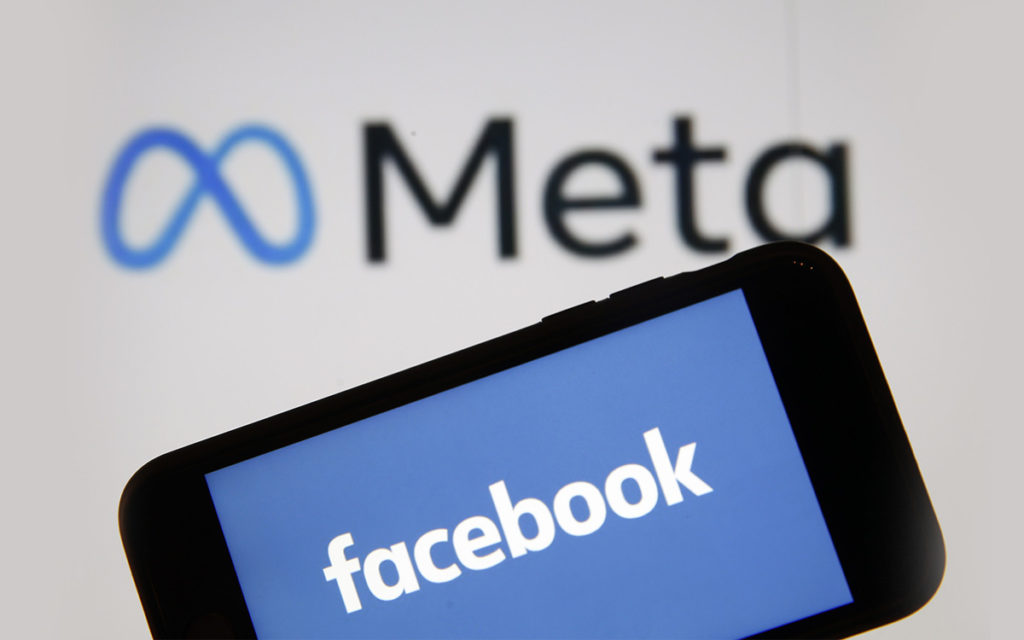
Long-term problems with Facebook
While Facebook and Meta may be upset about their losses, they come at the expense of restricting how much access applications have to user data on an Apple iPhone, which we believe is a positive step toward user privacy. Now, Meta 500 Billion Dollar loss has come to light.
But it’s not as simple as that. Google pays Apple an annual fee to keep the business from developing its own search engine. Wehner also commented on the subject, stating that Apple prefers Google’s search ad companies.
Rather than being caused by the new name, a large number of Meta’s issues are a consequence of Apple’s privacy rules, which were implemented in iOS 14 and enable users to opt-out of targeted advertisements and restrict applications from monitoring cross-app activity. Meta estimated that the move would result in a $10 billion decrease in ad income this year, news that caused the company’s market capitalization to plummet by $232 billion in a single day. Meta 500 Billion Dollar loss was calculated instead. Additionally, Now, Meta 500 Billion Dollar loss has come to light.
The Privacy Sandbox for Android, developed by Google, will impose comparable privacy restrictions to Apple’s, however, its implementation will not be as stringent as Apple’s, and it will not be available for at least two years.
Then there’s Facebook to consider. The social networking platform had an unwanted surprise in its most recent financial report: its daily user counts declined for the first time in the fourth quarter, causing its stock price to plummet by 20 percent in response. Now, Meta 500 Billion Dollar loss has come to light. Furthermore, the company’s AR and VR subsidiary (Reality Labs), which is a key component of its metaverse aspirations, posted a $10.2 billion loss in the fiscal year 2021.
Another issue for Meta is that, although many businesses are attempting to capitalize on the metaverse concept, the majority of customers are uninterested in what some view to be a virtual reality version of Second Life. However, although the metaverse, Web 3.0, and NFTs may thrill companies hoping to profit on them, the buzzwords leave many consumers uninterested at best and angry at worst—a patent hinting to metaverse eye-tracking ad tech hasn’t helped matters.
To conclude, After Now, Meta 500 Billion Dollar loss has come to light. they revealed, Meta still has a $561 billion market capitalization. It generated $33.76 billion in revenue during the fourth quarter of 2018, an increase of 20% year on year, and the total number of daily active users across all of its applications increased marginally, indicating that it is not in crisis. However, it is possible that the metaverse, or at least Meta’s perception of it, will not be as revolutionary as Zuckerberg believes. Thus, Meta 500 Billion Dollar loss is a huge loss to overcome.

